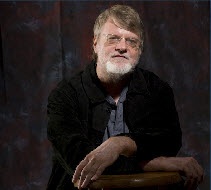For this month’s Roundtable, I sent out questions way, way before deadline. If you know writers, you already understand my mistake. I ended up with only two replies and a couple of requests for a nudge closer to the drop-dead.
A little over a week ago, I sent out that nudge with the original questions, this time to a slightly larger group. The response was larger—so much larger that I’ll spread the answers over the next few weeks.
This month’s topic is heroic fantasy. Consider these answers a starting place to continue the conversation right here in comments. One randomly determined person who comments here, on the blog—not on one of the social media sites advertising this post—will receive a free copy of Prince of Wolves, Master of Devils, Queen of Thorns, King of Chaos, or Winter Witch from audible.co.uk.
Don’t forget to check out the websites, and especially the books, of those who’ve bestowed their jewels of wisdom on our humble site.
What was the first heroic fantasy novel you remember reading? Has your own writing emulated it or responded with an alternative take on the genre?
Lou Anders: When I was a tween, my father handed me a copy of Edgar Rice Burroughs’ A Princess of Mars and said, “You’re going to read this.” I automatically objected to anything my father was ordering me to do, so I looked for a way out. We were a conservative southern family living in Alabama, so even though I rather liked the beautiful Michael Whelan cover illustration, I used it as my line of attack.
“But it has a naked woman on the cover,” I pointed out. Actually, my accent was a bit thicker back then, so what I said was “nekkid.”
“I know it has a naked woman on the cover,” my father replied. “But it’s still a good book, and you’re going to read it.”
Thus beaten, I read A Princess of Mars. Then the rest of the Martian series. Then every other book by ERB I could find over the next year. This led me to Fritz Leiber, Robert E. Howard, and Michael Moorcock, and on to a life in genre fiction.
After fifteen years working as an editor in the science fiction field, I’m now a full time author, the writer of the Thrones and Bones series from Penguin Random House (www.penguinrandomhouse.com/). Having read thousands upon thousands of works of science fiction and fantasy, it’s somewhat surprising to me to find that these early influences are still perhaps the strongest in my work. I see Moorcock and Leiber all over Frostborn, Ian Fleming gets a nod in Nightborn, and you’ll see a big Burroughs nod when Skyborn is released next year.
Sometimes I’m writing in emulation of, others in reaction to, but these childhood influences never go away.
Bill Bodden: I think The Hobbit was my first epic fantasy read back in second grade. If that’s not epic enough for somebody, I read the Lord of the Rings trilogy soon after. My brother Mike funneled a lot of good books my way back then, and got me hooked on Michael Moorcock not long after. I hope my own writing takes a page or two from Tolkien, but I’ve read so much other good stuff that I can’t imagine its influence being too overwhelming.
I’m working on a novel right now that starts out with the good guys having lost and being on the run and where they go from there.
Richard Lee Byers: It’s been a long, long time for me, and I’m honestly not sure anymore. But some of the ones I read very early on are Conan the Conqueror by Robert E. Howard, Three Hearts and Three Lions by Poul Anderson, The Incomplete Enchanter by L. Sprague de Camp and Fletcher Pratt, and Witch of the Four Winds by John Jakes. I think Howard, Anderson, and de Camp and Pratt all influenced my approach to the genre. Howard showed me the exotica, violence, and darkness that underlie sword-and-sorcery, deCamp and Pratt brought a realistic perspective and humor to the form, and Anderson achieved a synthesis of the two. Though I don’t claim to be anywhere near as good, I think I take an Anderson kind of approach. (Jakes may have influenced me in some way as well, but I think that when doing heroic fantasy, he was essentially a Howard imitator, and if I took something extra away from him, I’m not conscious of it.)
Heroic fantasy is a blanket term that includes popular genres like epic fantasy and sword & sorcery. Do you feel epic and S&S are mutually exclusive? Or can (and should) we mix them like peanut butter and chocolate? Are there some other, overlooked subgenres of heroic fantasy? And does grimdark fit under this blanket or lie outside?
Lou Anders: My short hand for the difference between epic fantasy and sword & sorcery is that epic fantasy is The Iliad and sword & sorcery is The Odyssey. This could work as easily with The Lord of the Rings (epic) and The Hobbit (S&S). But the genres really aren’t mutually exclusive. It’s always a mistake to be prescriptive, rather than descriptive, with genre definitions, to draw lines in the sand or build fences and declare “always this, never that.” Michael Moorcock’s Elric series is surely one of the defining works of sword & sorcery (the term exists because he called for it and Fritz Leiber answered), yet Elric destroys all his gods and remakes the world—surely the most epic of epic-scale actions. For me, subgenres are mountain tops. You know it clearly when you are on their peaks, but as you walk down the hill and enter the valley between one mountain and another, things blend and mix. It’s a direction you are facing, a course to chart, but not a boundary you are forbidden to cross.
Bill Bodden: I don’t feel that the terms “epic” and “Sword & Sorcery” are mutually exclusive. The boundaries between most genres in the genre fiction category are so fluid now that even if S&S and epic weren’t commonly (and strongly) associated with each other, there would be no way to split them up easily and cleanly. Grimdark, or dark fantasy, fits into this category as well, but again, there’s a lot of overlap.
Richard Lee Byers: To me, all epic fantasy is sword-and-sorcery, but not all sword-and-sorcery is epic fantasy. In other words, If the story’s got swordplay, wizards, castles, monsters, all that noise, it’s sword-and-sorcery, but if it’s a short story about a couple rogues camped out in an alley who run afoul of a supernatural menace (“The Cloud of Hate” by Fritz Leiber) or a barbarian thief who sneaks into a wizard’s citadel and ends up releasing an imprisoned alien being which then takes its vengeance on the mage (“Tower of the Elephant” by Robert E. Howard), it’s not epic fantasy. The scale is too small. Epic fantasy deals with the fate of nations if not the entire world, and it lends itself to long stories which cover a lot of ground and have many characters and subplots. The tricky part is deciding on a threshold, the point at which sword-and-sorcery becomes epic. We would probably all agree that The Lord of the Rings by J. R. R. Tolkien, A Song of Ice and Fire by George R. R. Martin, and Memory, Sorrow, and Thorn by Tad Williams are epic fantasy, but is Conan the Conqueror? It’s much shorter than any of the multi-volume works I just mentioned and has a much simpler, more linear story line, but in it, too, the fate of a great kingdom and probably the whole world of the Hyborean Age hangs in the balance. So people may well differ as to whether it meets the qualifications to be considered epic.
As for grimdark, my answer is similar. All grimdark is sword-and-sorcery, but not all sword-and-sorcery is grimdark. Basically, if your heroic fantasy has a noir-ish, cynical tone to it, that qualifies it as grimdark.
Elaine Cunningham: Urban fantasy isn’t the first thing that comes to mind when we’re talking heroic fantasy, but I would definitely list several series under that banner. The first that comes to mind is the Kate Daniel series by Ilona Andrews. Kate is a classic fantasy hero. She starts out as a tough loner who was raised and trained for one purpose: to kill her insanely powerful father or die trying. She spent her childhood on the run and has always had to take extreme measures to hide her identity and her magic until she was powerful enough to have a chance of succeeding. But as she starts making connections with other people (and were-people), she takes on the responsibilities that come with the package. She makes her first real friend, adopts an orphaned teenager, falls in love, and risks her life over and over. Kate is, quite simply, heroic. If someone tries to harm her people, she’s there in front of them, sword drawn and half-understood (and frequently back-firing) magic blazing. Kate is currently my favorite fantasy hero, hands down.
Another example is Harry Dresden. It could be argued that he’s more of an anti-hero—especially now that he’s bound to the Unseelie Court and the half-mad Queen Mab—but despite his complicated history and current alliance, he’s as self-sacrificing as he is badass. Kevin Hearn’s Iron Druid series also has the tone and themes I associate with heroic fantasy.
Roundtable Contributors

Lou Anders is the author of Frostborn, Nightborn, and the forthcoming Skyborn, the three books of the Thrones & Bones series of Norse-themed fantasy adventure novels written for boys and girls equally. Anders is the recipient of a Hugo Award for editing and a Chesley Award for art direction. He has published over five hundred articles and stories on science fiction and fantasy television and literature. A prolific speaker, Anders regularly attends writing conventions around the country. Find Lou on Twitter at @LouAnders.
Bill Bodden has been a freelance writer for more than a decade, with numerous credits in magazines and in the Tabletop RPG field. Currently working on fiction as well, Bill has sold two short stories to anthologies: “In the Shadow of His Glory,” from Sidekicks (Alliteration, Ink) and “A Quiet House in the Country” in Haunted: Eleven Tales of Ghostly Horror (Flames Rising Press). Bill lives in Wisconsin with his wife, a cat, and piles of books on most flat surfaces.

Richard Lee Byers is the author of forty fantasy and horror novels including the “Black River Irregulars” trilogy (coming soon from Privateer Press), and the “Impostor” series (launching in February from Rothco Press.) He invites everyone to Follow him on Twitter, Facebook, Google+, and Ello.
Elaine Cunningham is a former music and history teacher, but can’t seem to shake either habit. She performs with the Providence Singers, a symphonic choir associated with the Rhode Island Philharmonic, and is currently (and slowly) researching her first foray into historical non-fiction. Her publications include 20 novels, about four dozen short stories, some odds and ends of poetry, and a graphic novel. After taking an extended break punctuated by the occasional short story, she has finally begun writing a new novel.

Dave Gross is the erstwhile editor of such magazines as Dragon, Star Wars Insider, and Amazing Stories. Among other settings, he’s written stories in the Forgotten Realms, Iron Kingdoms, and the world of Pathfinder Tales. His latest novel is Lord of Runes, and his most recent story “The Wendigo” in Gods, Memes, and Monsters.
